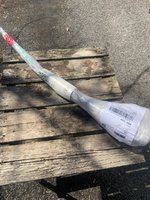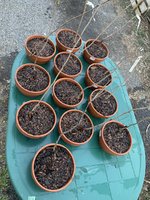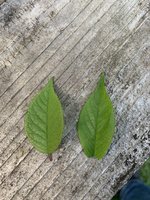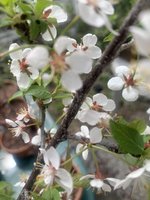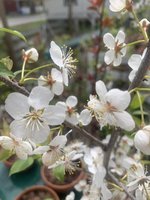River's Edge
Masterpiece
The University of Saskatchewan ( Saskatoon ) has a propagation farm that supplies licensed nurseries with Prunus Nigra. They also sell from the farm at an annual sale in February I believe. I also understand there is native stock of Prunus Nigra in isolated riverbank areas of Saskatchewan and Manitoba. If you have any contacts in Saskatoon, they could attend the sale and purchase a quantity for you. I believe they were $5 per plant last year.So what I have here I believe is Canada Plum Prunus Nigra. It is closely related to American wild plum . But is separate species It flowers before the leaves this is a wild tree . I will have to see the leaves to be 100 percent sure . I live in the native range but it will hybridize with other plums. From flower details and the black bark stem details I believe this is pure tree . I’m told they have to found isolated alone like this It’s growing on federal governent controlled park land so collecting is illegal . Collecting fruit and or taking cuttings is perfectly legal Question is how to propagate . Area has flock of wild turkeys looks like they or something ripped all the last fruit from the tree so may be hard to beat them to it . So looking for cutting advice timing ext any one have experience prunus mume cuttings etc . Research says it will come true from seed as long as no other cultivars around . It is prized as such for its cold hardiness as root stock for fruit trees info I have is cuttings after flowers fade but looking for someone with practical experience any thoughts
perhaps you are already aware of this source. Often a good idea to check with research centres. The university of Saskatchewan has done a lot of work on hybridization of fruit trees to adapt them for our climate and are quite renown for their work. To this end they maintain " pure" stock of important native strains to work with.
Just some added information for those interested in the topic.


